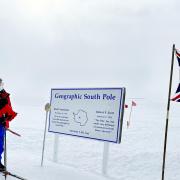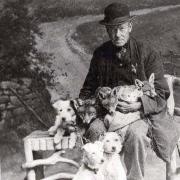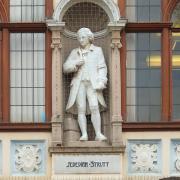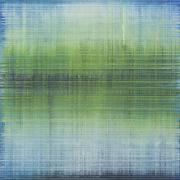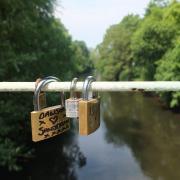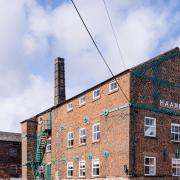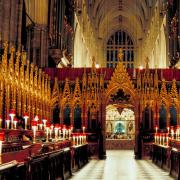An interview with the Dowager Duchess of Devonshire and Charlotte Mosley following their virtuoso performance at Buxton Festival's Literary Series
In 1956, the writer and war hero Patrick (Paddy) Leigh Fermor took up a long-standing invitation to stay with the Duke and Duchess of Devonshire at Lismore Castle, their home in Ireland. The Duchess, popularly known as Deborah or 'Debo', was greatly entertained by Paddy, whom she described as 'a brilliant shining star', and he was utterly seduced by the youngest of the six Mitford sisters, finding her 'funny, touching, ravishing and enslaving'. Their mutual admiration sparked a deep, platonic friendship and an exchange of letters that has continued to this day.
Over the years, they have used their correspondence to pass on news of their most memorable exploits. Deborah delighted in telling Paddy about her attendance at events to mark President Kennedy's inauguration, taking particular pride in reporting that the President had climbed over seven rows of seats to say goodbye to her after a ball. In 1956, Paddy wrote to Deborah about the filming of Ill Met by Moonlight, which is based on his daring capture of General Heinrich Kriepe in Nazi-occupied Crete. Sixteen years later, he was equally pleased to tell her about his reunion with Kriepe, when the two men shared an enormous banquet in a Greek taverna.
For half a century, Deborah kept Paddy posted on the progress of her efforts to convert her Derbyshire home into a profitable concern, reporting as early as 1959 that 'Chatsworth is now like a job, 9 to 6 with an hour for lunch', and Paddy has always sent her detailed and beautifully written accounts of his many epic journeys, some of which read like prototype chapters for his celebrated travel books.
However, the two correspondents have often written simply to keep each other amused. In one letter, Paddy entertained his aristocratic friend with 60 invented book titles, such as Dunking by Ruskin and Consenting Adults by Abel N Willing. In a letter sent in 1958, Deborah wrote, 'Uncle Harold (Harold Macmillan) has become much more human all of a sudden and talks about things like adultery quite nicely.' In the same year, she reported Augustus John's reaction to the news that her daughter Emma intended to give a skeleton to St Elphin's as a leaving present: 'He said she could have his but then admitted it might not be ready by August.'
Paddy has always sent Deborah copies of his newly-published books and she has always received them gratefully, whilst admitting, as a self-confessed non-reader, that she would be unlikely to read them. In 1982, she sent Paddy a copy of her first book, The House: A Portrait of Chatsworth, adding a comment that she would 'rather write a book than read one any day'. However, when Paddy told her that he was intending to dedicate Three Letters from the Andes to the Duke and Duchess, Deborah replied, 'I might learn to read in honour of the honour.'
These wonderfully entertaining letters have been collected in a new publication entitled In Tearing Haste, edited by the Dowager Duchess' niece by marriage, Charlotte Mosley, who has added informative footnotes, together with comments by the two letter-writers. Charlotte says that each correspondent reacted very much in character to the editing of the letters: 'Debo, unconcerned about perfect style or syntax, let hers stand as she wrote them, while Paddy's exacting standards made it impossible for him to let any glaring infelicities slip through.'
Although the Dowager Duchess' letters may not have quite as much literary finesse as Paddy's, there is no doubt that they represent letter writing at its very best. Keen to assure Deborah of their merit, Paddy told her, 'You do write good letters, you know, you really do, in that whizz-bang planchette style, hitting the nail on the head again and again without even looking.'
This latest collection of letters follows hard on the heels of the best-selling book entitled The Mitfords: Letters between Six Sisters, which was also edited by Charlotte Mosley, who joined the Dowager Duchess at the Buxton Festival earlier this year to promote the paperback edition. Sitting side-by-side on the stage of the Buxton Opera House, they had a packed house almost rolling in the aisles as they read extracts from the letters. The Dowager talent for mimicry by imitating the exaggerated aristocratic voice of her sister Pamela.
A few days after this virtuoso performance, I talked with Deborah and Charlotte at the Dowager Duchess' home on the Chatsworth Estate. After joking to Deborah that she could have pursued a career as a stand-up comedian if she had not been so preoccupied with saving a great house, I asked her if she enjoyed performing before an audience. She replied, 'If it makes people laugh, I do enjoy it, although I sometimes find it difficult to control my own laughter.' Accounting for a sibling correspondence that amounts to a staggering 12,000 letters (five per cent of which appear in the book), she said, 'Letters were our means of keeping in touch but, most of all, we just wanted to amuse one another.'
As might be expected, the comic novelist Nancy Mitford was the author of some of the funniest letters. For example, she said of President Kennedy: 'He's doing for sex what Eisenhower did for golf.' However, Deborah is certainly her equal in terms of witty observation. Reporting to Jessica about her year as a debutante, she wrote: 'One young man told me a funny (?) story three times. At least I think it was the same young man but one can't possibly tell.' Writing to Diana about the founder of Great Universal Stores, she said, 'Sir Isaac Wolfson was very sweet the other night, he is always asking if he could sell one a washing machine on 36 easy payments.'
The contrast between Nancy and Deborah was well summed up by Charlotte Mosley, who said, 'Debo could be quite as sharp and funny as Nancy but without her elder sister's spiteful streak.' Nancy didn't like the extra attention given to Pamela after her brush with polio and she accused Diana of being 'a very dangerous person' when she persisted with her Fascist beliefs during the war. She was also a cruel tease, even calling Deborah '9' on the grounds that this was her mental age as a reader. However, Deborah reacted in characteristic fashion by adopting the nickname and even using it to sign many of her letters.
Political differences between the sisters culminated in Jessica destroying all but one of the letters Diana had written to her, even though she had once called her 'my favourite person in the world'. In marked contrast, Deborah carried on writing to all her sisters throughout all the rifts. Explaining why she always remained on friendly terms with everyone, she said 'I don't like rows and I have absolutely no interest in politics.' She also told me of an evening in the early Eighties when her husband, who had joined the newly formed Social Democratic Party, invited the 'Gang of Four' to Chatsworth. Deborah deliberately went to bed before they arrived.
The Dowager Duchess' openness was apparent throughout our conversation at Chatsworth and it was equally apparent to Charlotte during the compilation and editing of the letters, when Deborah gave her unrestricted access to the correspondence and exercised no censorship whatsoever. The result is two highly entertaining collections of letters, both of which illustrate that the Dowager Duchess of Devonshire has a wonderful talent to amuse.
In Tearing Haste; Letters between Deborah Devonshire and Patrick Leigh Fermor is published by John Murray at �25. The Mitfords: Letters between Six Sisters is published in paperback by Harper Perennial at �10.99.







